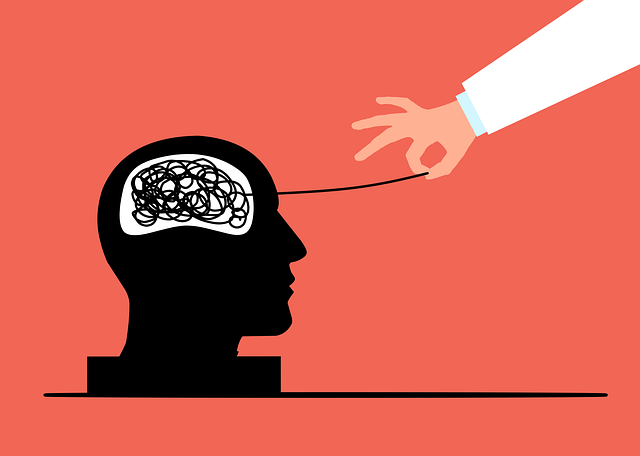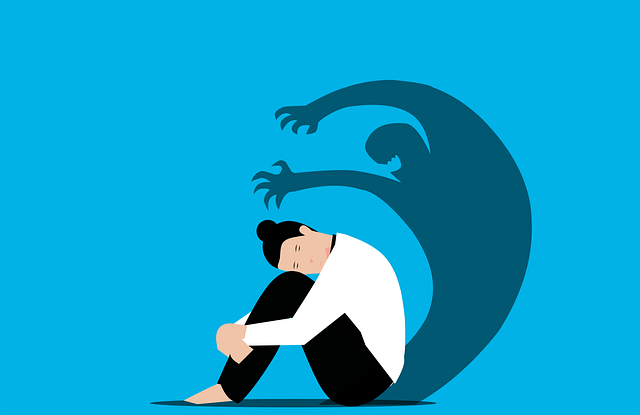Understanding mental health is key to developing an effective self-care routine that combines therapy for depression, mindfulness meditation, and mental wellness coaching. By recognizing and managing emotional, psychological, and social well-being, individuals gain inner strength to cope with life's challenges. Personalized self-care routines, tailored to unique needs, involving activities like exercise, sleep, hobbies, gratitude journaling, and supportive communities, are powerful tools for managing conditions like depression. Regularly evolving these routines based on progress ensures ongoing emotional balance, with professional support through therapy for depression or wellness coaching as needed.
Developing a mental wellness self-care routine is an essential aspect of maintaining and improving one’s overall well-being, especially in managing depression. This article guides you through a comprehensive journey of understanding your mental health, identifying effective self-care practices, and creating a personalized routine. We explore various strategies to help you sustain and adapt your self-care over time, incorporating therapeutic techniques for depression management. Embrace a healthier, happier you!
- Understanding Your Mental Health and Well-being
- Identifying Self-Care Practices for Depression Management
- Creating a Personalized Routine: Tips and Strategies
- Sustaining and Adapting Your Self-Care Journey Over Time
Understanding Your Mental Health and Well-being

Understanding your mental health and well-being is a crucial step in developing an effective self-care routine. It involves recognizing and acknowledging your emotional, psychological, and social state. Mental wellness isn’t just the absence of illness; it’s about cultivating inner strength and resilience to navigate life’s challenges. Through therapy for depression or other mental health concerns, individuals can learn coping mechanisms and strategies tailored to their unique needs. This process empowers them to take charge of their emotional well-being.
Self-care becomes a powerful tool when centered around mindfulness meditation practices, which have been shown to reduce stress and anxiety. Additionally, exploring mental wellness coaching programs can offer guidance and support in establishing routines that nurture both mind and body. By combining these approaches—inner strength development through therapy and mindful practices—individuals can create sustainable self-care habits, enhancing their overall mental wellness.
Identifying Self-Care Practices for Depression Management

Managing depression requires a multifaceted approach, and self-care practices play a pivotal role in this journey. Therapy for depression often involves exploring various strategies to improve emotional well-being. One effective method is cultivating emotional intelligence—the ability to recognize and manage one’s emotions effectively. This starts with identifying triggers and developing coping mechanisms tailored to individual needs. Self-care routine development becomes an essential tool here, offering a structured way to navigate mental health challenges.
Incorporating practices like mindfulness meditation into daily routines can significantly enhance emotional balance. It encourages individuals to stay present, fostering a deeper connection with their thoughts and feelings without judgment. By integrating such self-care techniques, one can proactively manage symptoms of depression, improve overall mental health, and complement the therapeutic process.
Creating a Personalized Routine: Tips and Strategies

Creating a personalized mental wellness self-care routine is a powerful tool for managing and improving your overall well-being, especially when dealing with conditions like depression. It involves understanding your unique needs and incorporating activities that nurture your mind, body, and spirit. Start by identifying triggers and patterns in your daily life; this awareness will guide you in designing a tailored routine. For instance, if certain environments or situations contribute to depressive episodes, strategize ways to mitigate these risks through mindfulness practices or seeking therapy for depression when needed.
Consider integrating diverse self-care activities such as regular exercise, sufficient sleep, and engaging hobbies into your schedule. Building resilience and confidence is facilitated by consistent self-care, which can be enhanced through risk management planning for mental health professionals. Additionally, set achievable goals, practice gratitude journaling, or connect with supportive communities to foster a positive mindset. Remember, a personalized routine is flexible; it evolves as your needs change, ensuring ongoing support in your mental wellness journey.
Sustaining and Adapting Your Self-Care Journey Over Time

Sustaining a self-care routine is a continuous journey that evolves with your mental wellness needs. What works today might not be as effective in six months, and that’s okay! Adaptability is key to thriving over time. Regularly assess your progress and make adjustments based on your emotional regulation and overall mental health. For instance, activities like meditation or journaling might have been initially soothing but could benefit from incorporating new techniques or formats as you grow.
Consider seeking support through therapy for depression or exploring mental wellness coaching programs development to enhance your self-care practices. These professional resources can provide tailored guidance, ensuring that your routine stays aligned with your unique needs and promotes ongoing emotional well-being.
Developing a mental wellness self-care routine is a powerful tool for managing depression. By understanding your unique mental health needs and incorporating personalized practices, you can significantly improve your overall well-being. The strategies outlined in this article, including identifying effective self-care practices and adapting them over time, empower individuals to take control of their mental health journey. Remember, therapy for depression is accessible, and with consistent self-care, it’s possible to cultivate resilience and embrace a brighter, more balanced life.














